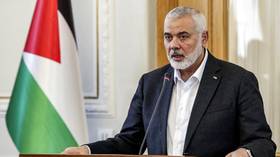Russia to reduce oil discounts – RBK

The Russian government plans to continue reducing the discount of Russia’s flagship Urals blend of crude oil to the Brent benchmark, RBK business daily reported on Monday, citing a draft of the federal budget for 2024-26.
According to the report, the discount is expected to gradually decrease from the current $20 per barrel to $6 in 2026. Next year, the discount will stand at $15 per barrel and in 2025 it is expected to be $10.
Moscow has changed the way it assesses crude prices for tax purposes after the imposition of the EU’s embargo on purchases of Russian oil in December and the price cap by G7 nations. The move is aimed at offsetting the effect that the drop in prices for Urals crude was having on budget revenues. The price of Urals at times has been around $35 to $40 per barrel lower than that of Brent.
In July, Russian President Vladimir Putin signed into law amendments in the tax code for the energy sector to reduce the discount of Urals crude to Brent from $25 per barrel to $20 starting in September.
According to RBK, the planned changes in the discount will allow the Russian budget to collect an additional 860.9 billion rubles ($8.9 billion) next year, another $9.7 billion in 2025, and an additional $8.9 billion in 2026. As a result, oil and gas revenues, which are projected at $92 billion in 2023, are expected to jump to $119 billion in 2026.
The government is reportedly working on the development of Russia’s own price indicator, which will be calculated on the basis of trading on the St. Petersburg International Mercantile Exchange (SPIMEX). It should be operational from the beginning of 2024 and will also be used to calculate oil taxes, according to RBK.
For more stories on economy & finance visit RT's business section












